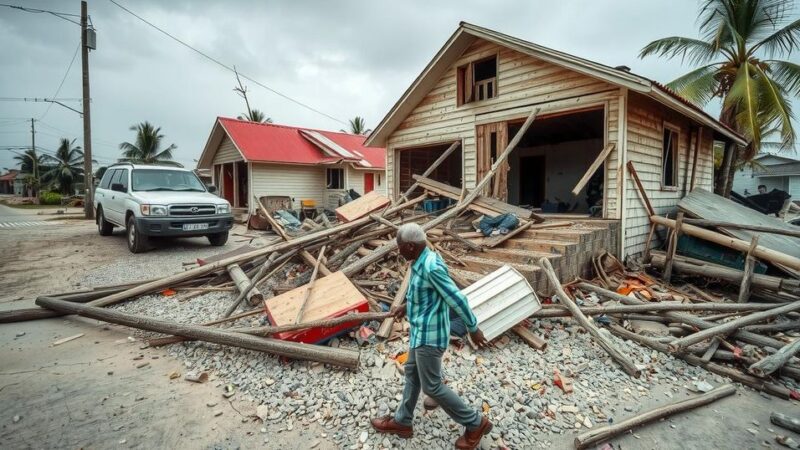At COP29, discussions revealed a consensus on the need for a financial package addressing climate loss and damage. A modest tax on major oil and gas companies could drastically increase support for affected communities. Implementing a Climate Damages Tax could raise significant funds to mitigate ongoing climate impacts, emphasizing the urgent need for financial responsibility to shift from victims to polluters.
At the recent COP29 climate change conference in Baku, government officials engaged in intense discussions regarding a new financial framework to address climate loss and damage. With the climate crisis significantly impacting vulnerable populations globally, a critical question arose: who will bear the financial burden? An analysis by Greenpeace International and Stamp Out Poverty indicates that imposing a modest tax on the revenues of the world’s largest oil and gas companies could increase the United Nations Fund for Responding to Loss and Damage by over 2000%.
For instance, taxing ExxonMobil’s extraction activities in 2023 could fund half of the expenses related to Hurricane Beryl, which devastated regions in the Caribbean, Mexico, and the United States this year. Similarly, a tax on Shell could mitigate damages caused by Typhoon Carina in the Philippines, while levies on TotalEnergies could cover 30 times the costs of the anticipated floods in Kenya in 2024.
Proponents of a Climate Damages Tax (CDT) assert that this approach could provide critical financial resources to affected communities, as oil major companies amassed nearly US$150 billion in profits last year alone. By instituting a long-term tax on fossil fuel extraction across wealthier OECD nations, projected annual increases of US$5 per tonne of CO2-equivalent could yield an estimated US$900 billion by 2030, effectively enabling assistance for governments and communities grappling with mounting climate impacts.
This pressing issue revolves around the principles of climate justice. It is imperative to shift the financial responsibility of climate change from those suffering its consequences to the corporations that have contributed to the crisis. The enactment of the climate damages tax and additional fiscal measures to hold the oil and gas sectors accountable is crucial.
The evident complicity of Big Oil in exacerbating climate challenges necessitates mobilized public pressure to ensure polluters take responsibility. Activists have rallied alongside flood survivors, delivering symbols of loss to the offices of energy companies, reinforcing the message that continued oil and gas production intensifies individual and communal misfortunes. Global governance must respond decisively to hold these corporations accountable and promote a sustainable future.
In conclusion, the discourse surrounding climate justice stresses that those responsible for the climate crisis—namely, oil and gas corporations—should bear the costs of their actions. Comprehensive tax strategies and revenue mechanisms can empower communities affected by climate disasters, enabling them to recover and thrive in the face of such adversity. The time is ripe for decisive action to compel fossil fuel producers to contribute their fair share to combat climate change.
The call for accountability from major oil and gas companies arises amid increasing climate-related disasters that disproportionately affect less resilient communities. At the COP29 conference, discussions centered on financing strategies to manage the escalating costs associated with climate loss and damage, revealing a consensus that those who contribute most to the climate crisis should also contribute to solutions. The advocacy for a Climate Damages Tax is grounded in both ethical considerations and economic practicality, as evidenced by the substantial profits generated by these companies amidst a backdrop of climate devastation.
In summary, the argument for implementing a Climate Damages Tax is rooted in the principles of climate justice and accountability. By redirecting the financial responsibilities for climate change onto the corporations that have significantly contributed to its progression, society can better address the current and future impacts on vulnerable populations. Engaging in this discourse challenges traditional views on responsibility and encourages innovative financial solutions to combat climate loss and damage effectively.
Original Source: www.greenpeace.org







